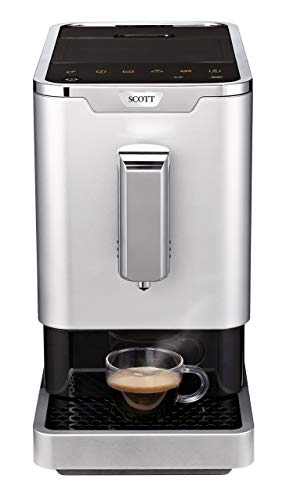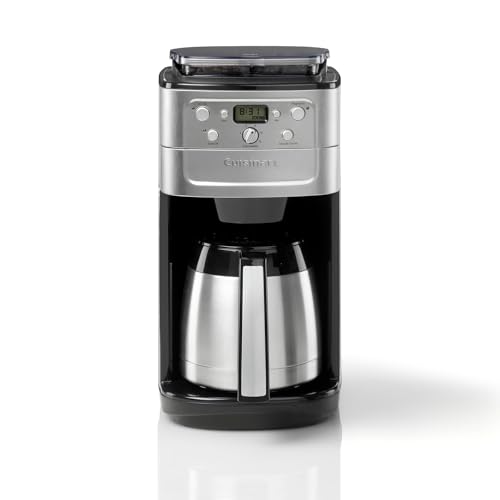20 Trailblazers Lead The Way In Bean Coffee Machine
페이지 정보
작성자 Christine 작성일 24-09-05 23:24 조회 75 댓글 0본문
 Coffee bean to cup coffee machine with automatic milk frother Coffee Machines
Coffee bean to cup coffee machine with automatic milk frother Coffee MachinesWhen you purchase a coffee bean machine, you can take pleasure in fresh, delicious whole-bean coffee made according to your specifications. The machine grinds, measures, and tamps, and forces hot water into the grounds to create rich, flavourful, coffee.
These machines have many advantages including ease of use and a reduction in environmental waste compared to pod machines. The machine is fully automated and operates at the touch of a button.
Here are a few alternatives to the word "grind"
If you are making your own coffee, the type of grind you select is essential to make the best cup of coffee. The size, shape and consistency are all crucial. If you do not grind beans correctly, the water will move through the grind too fast. This can result in bitter taste or lack of flavor.
A good grinder should include a variety of sizes so that you can select the most suitable method for your brew. It's important that you test different sizes of grind because this can affect the flavor of your coffee. The smallest grind sizes are ideal for espresso and French press, whereas the larger, more coarsely crafted particles are best for brewing with an immersion method such as the Chemex or Moka pots.
Try roasting your beans and then grinding them just before brewing to make a delicious cup of coffee. This will enhance the flavor and aroma of your brew and ensure an excellent cup every time. To ensure the freshness and flavor of the beans, keep them in a sealed airtight container in a dark, cool location.
Commercial coffee bean to cup machines offer unbeatable convenience and allow you to enjoy barista-quality coffee with the click of the button. These machines can handle everything from preparing coffee beans to the tamping process. They are an ideal choice for busy offices and cafes.
The first step is grinding your beans to a specific size. They can be set up to match your preferred brew method and can be programmed to serve the desired number of cups at a time. Some automatically tamp the grounds for you to form a perfectly compacted ball of coffee, which ensures the most consistent extraction.
A bean-to-cup machine usually has a large hopper that can be filled with whole beans. The machine will then automatically grind and disperse the right amount of beans needed for the brew method you select. The display on these machines will show the amount of beans and the size of grind you have selected. It will also show the total amount of drinks the machine is preparing.
Extraction
When the coffee bean is ground it breaks into smaller pieces, referred to as particles. The size of the particles can affect the extraction process and the final cup's taste. In a bean-to-cup machine, the size of the beans is controlled before brewing so that it matches up with the extraction method required by the machine. This lets you make a fantastic cup of espresso every time without the need for barista expertise.
A bean to cup machine lets you control the brew time to achieve the strength you desire. This is a significant advantage over pod machines which give you less control and can lead to less flavorful or bitter espresso. In addition to regulating the brew time, bean to cup coffee machine offers-to cup machines usually allow you to control the water temperature so that you can decide the strength of your coffee. be.
Extraction is an intricate process that depends on the proper proportion of particle size, dose and tamping pressure. A poorly extracted coffee can be caused by any of these variables. Coffee that is under-extracted will taste sour and sharp, while coffee that is too extracted will taste dry and bitter.
To ensure that your coffee is extracted properly, you need to use a high-quality grinder and the appropriate type of beans. Light roasts are often not the best choice for fully automatic or espresso machines, as the short extraction process can result in a coffee that is dry and lacking in body. Darker roasts that have a high Robusta percentage, such as our Jhai (100 percent Robusta) or Tiga Terra are ideal for these machines, because they provide more robust flavors and bodies.
The final decision between a bean-to cup machine and pod coffee machines comes down to individual preference and convenience. Pod coffee machines are great for making tea and coffee. However they are less efficient in terms of cost and waste when disposing of used pods.
Dispensing
The use of whole beans eliminates the need for pods, saving you money and offering more flexibility. This also means you'll need to do more maintenance and cleaning of your machine than you would with a pod-based machine.
These machines are designed to be low-maintenance and include numerous features that make the task easier. For instance, the majority of coffee makers with beans-to-cups have automatic cleaning and rinsing cycles making it easy to keep your machine clean without disrupting your daily activities.
Another useful feature is the possibility to add steaming hot milk to coffee beverages. This allows your team to tailor their drinks to their preferences and tastes while also increasing productivity. Additionally, it's an excellent way to demonstrate to your team members that you care about their well-being. In fact it has been proven scientifically that coffee machines beans can boost dopamine production and norepinephrine production which enhances focus and motivation at work.
Some models also offer beverage customization options, such as texturizing milk for cappuccinos and lattes. This is a huge draw for baristas who have limited time to make each cup of coffee machine beans to cup.
Another thing to look for in a good quality bean-to-cup coffee maker is the water tank and bean hopper size. The tank determines how long the machine can run before requiring a refill, and the size of the hopper affects how often you'll have to replenish your beans. The larger capacity the lower the frequency you'll have to replenish.
You must carefully consider the type of beans you will be using before purchasing a bean to cup coffee maker. Different grind sizes can alter the flavor and consistency of each cup. It is also important to look into the machine's programmable options, which allow you to customize your drinks to exactly how you like.
 The spouts that dispense coffee on your coffee bean machine might be blocked by coffee residue or other particles left behind after grinding. To prevent the possibility of a slow and inconsistent flow that could lead to an insufficient amount of coffee grounds, the spouts need to be cleaned regularly. This can be due to the grind being coarser or dried or oily beans, or a lack of regular cleaning.
The spouts that dispense coffee on your coffee bean machine might be blocked by coffee residue or other particles left behind after grinding. To prevent the possibility of a slow and inconsistent flow that could lead to an insufficient amount of coffee grounds, the spouts need to be cleaned regularly. This can be due to the grind being coarser or dried or oily beans, or a lack of regular cleaning.Cleaning
Cleaning coffee machines is an essential aspect of running a machine to prevent the buildup of traces that could negatively affect the quality and taste of drinks. Regular cleaning ensures that the machine is in good working order and reduces the chance of a breakdown that could lead to an expensive repair bill. A lot of bean-to-cup coffee makers come with a built-in cleaning cycle which will flush through pipes to cleanse the brewing unit. Others will have separate milk side cleaning cycle to ensure that both spouts are clean and safe.
During installation, a good rental company will train their staff on how to maintain and clean the equipment. This will reduce any confusion regarding the procedure and ensure that every step is adhered to. A clear set of instructions and a comprehensive knowledge of the process can assist in avoiding any mistakes that could result in costly repairs or poor quality drinks.
After every use, it's best to clean your carafe and permanent filter in hot soapy water, or in the dishwasher if the item is marked as safe. It is recommended also to run two or three times of clean water, without K cups or espresso ground in the machine. This will help get rid of any oily residue and will stop the growth of mould, bacteria or yeast.
It is an ideal idea for single-serve coffee machines and pod coffee makers to conduct a deep cleaning and descale every four weeks. A vinegar solution is normally employed for this. Add up to four cups of vinegar to the reservoir and run the machine through a brewing process. When the cycle is finished clean and descale the machine according to the manufacturer's instructions and run a couple of cycles of clean water to eliminate any vinegar odor.
Commercial machines typically come with a built-in telemetry system that records the details of each cleaning cycle. This can be viewed by you or your supplier to make sure that the machine is being regularly cleaned. This can also alert you to whether any of the moving parts have become stuck or seized that require more thorough maintenance and repair work.
- 이전글 Ten Stereotypes About SEO Consultant In London That Aren't Always The Truth
- 다음글 Beware Of This Common Mistake With Your Train Accident Lawyers
댓글목록 0
등록된 댓글이 없습니다.
